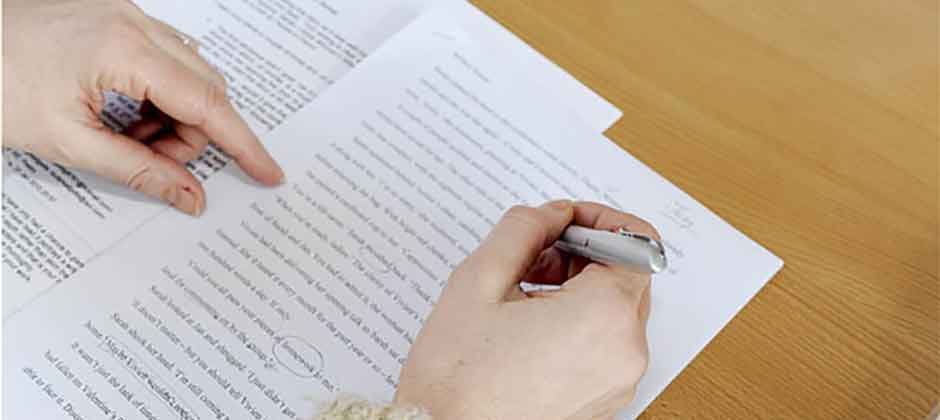A literature review helps assess the research which has been done in a particular field or subject.
It needs to be written well in order to communicate the gaps in previous research and contrast the different methodologies.
An effective review will serve as a good foundation for your research paper. It can be a separate piece of work or serve as an addition to your final paper.
But remember, it should not be a summary that is put together at the last minute.
Here are a few ways to write a good literature review.
Forms of Literature Reviews
A literature review doesn’t strictly follow a single format.
Depending on the content and structure, it can follow any of the following formats:
- A chronological literature review is one of the most common kinds. It lays down research in chronological order, starting from the oldest to the newest.
- A thematic or categorical review focuses on a recurring theme or a category.
- A methodological review compares the different kinds of research methods.
- A literature review can also simply curate summaries of previous research done in a particular field.
Sources For Literature Reviews
The primary sources you use for your literature review should contain a good amount of detail. This can include reports, manuscripts and theses.
Make sure to gather information from a wide range of sources. Don’t stick to one single source.
Books remain one of the most popular sources and you can find some of the most important research work in them. Physical bibliographies and encyclopedias can give you plenty of information to start with.
On the Internet, you can start with research databases that contain verified published material. Use specialist databases to narrow down your search to the topics you want.
There are categories for statistics, news sources, patents and much more.
Some online tools and resources can help you find specific mediums for research.
Pre-Planning For The Literature Review
Identify Your Topic
Have a clear idea of the topic you are researching.
You can’t find accurate sources or references if you don’t have a good idea of what you are writing.
You may seek professional help from writing services in Singapore that can help you with in depth research and work to produce quality literature review.
Note down the main keywords which are related to your topic and conduct your research specific to them.
Ideally, you should start with a library database and define your source selection criteria according to the information you want.
Study Research Articles
You have to study and analyze all the research pieces. Some of the important things you should note:
- The research methodology.
- The materials and methodologies which have been used to test a theory.
- The popularity of certain theories and principles.
- Well-known personalities referred by the author.
- Basic components of the study design.
- Structure of the author’s argument.
Take comprehensive notes of all the important aspects of research. Make notes of what you like and don’t like about each paper.
Organizing Your Sources
Organizing your sources will make it easier for you to refer to them later on. You won’t have to go hunting for a particular paper for writing the review.
Categorize the sources according to common headings, similar methodologies, niches, argument structure and miscellaneous.
You can also have a separate category for papers that stand out from the rest or interest you the most.
Writing the Literature Review
Many people don’t have a clear idea of the writing structure and content organization.
In some cases, you will be required to strictly follow a format especially if you are doing your Ph.D. For such a high level of academic writing, you can hire professional writing services like Writers Per Hour to help you with your research paper.
Avoid Over-Quoting
There is no need to include a quote from every article you have referenced.
Too many quotes will give your readers the impression that you haven’t studied or analyzed enough to make your own observation.
Instead of quoting, you can summarize the main points which have been made by the author.
Be Critical
Your literature review shouldn’t be a plain summary of previous research.
You should analyze and critically examine the merits and demerits of each study. If you find gaps, point them out.
Avoid including unnecessary information from fields that are not relevant to your paper.
Make Sure Your Writing Makes Sense
The review you write should have a connection with the main body of your literature paper.
If you are addressing a gap or issue with any of the author’s research, you should attempt to clear it in your paper. This should flow with the rest of your work and make sense to your readers.
Avoid making statements about any article without proof.
Review Your Writing
Be your own worst critic.
Don’t hesitate to read and re-read till you are satisfied with your writing output.
Check carefully for grammatical errors, spelling errors, misquoted statements, wrong data and missing punctuation marks.
If you feel like something is missing add it in and if you feel like something is unnecessary eliminate it.
Conclusion
Before you attempt writing a literature review, read a few published literature reviews, to get an idea of how you should draft your review.
Be patient and meticulous in your research and writing. If you rush through the process, the quality of your work will speak for itself and affect your grades!






